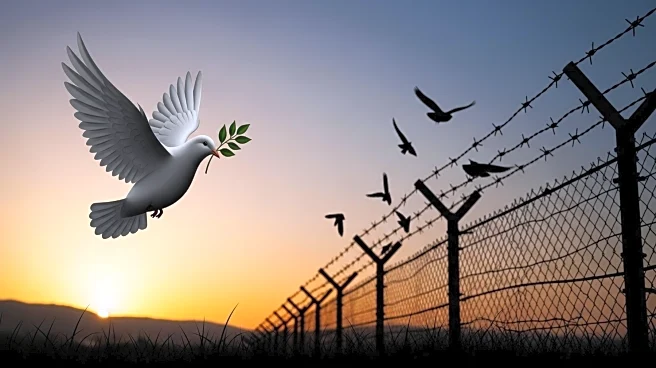What's Happening?
A ceasefire has been implemented in Gaza following a breakthrough agreement between Israel and Hamas. The deal, facilitated by pressure from the United States, Arab countries, and Turkey, aims to end the two-year conflict that has caused significant devastation in the region. The agreement includes the release of hostages and the withdrawal of Israeli troops from certain areas. However, many questions remain unanswered, including the disarmament of Hamas and the future governance of Gaza.
Why It's Important?
The ceasefire represents a critical juncture in the Israeli-Palestinian conflict, offering a chance for peace and stability in the region. It could lead to humanitarian aid reaching Gaza, alleviating the suffering of its population. The success of the agreement depends on resolving key issues, which could influence regional dynamics and international relations. The involvement of global powers in the negotiations highlights the geopolitical significance of the conflict.
What's Next?
The next phase involves complex negotiations on disarmament and governance, with international mediators playing a crucial role. The outcome of these discussions will determine the durability of the ceasefire and the prospects for long-term peace. The situation remains fragile, with the potential for setbacks if critical issues are not addressed. Continued pressure from the international community is essential to ensure compliance with the agreement.
Beyond the Headlines
The ceasefire highlights the intricate geopolitical landscape of the Middle East, where historical grievances and political ambitions often hinder peace efforts. The humanitarian aspect of the agreement, focusing on aid and reconstruction, reflects broader ethical considerations in conflict resolution. The role of external powers in shaping the outcome of the conflict underscores the interconnectedness of global politics.









